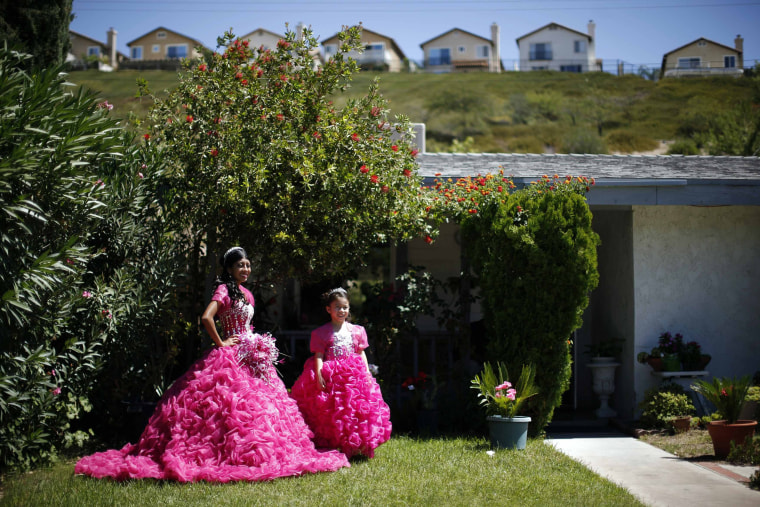In the last two years Latinos in California surpassed non-Latino whites. Demographics may not be destiny, but California sure gives us a big clue of what Latino politics nationally will mature into. So as the Golden State comes into the spotlight for it’s June 7 primary, it is useful to look a little deeper into its Latino political dynamics.
Latinos have a history in present day California that goes back to well before the Mayflower. Instead of focusing on the last 500 years I’ll focus on the last 50, which is when Latinos in California started to grow in numbers and political relevance.
RELATED: As Dems' Primary Saga Plays Out, Latino Voter Registration Surges
The Civil Rights Movement of the 1960s helped bring Latino politics to the fore across the Southwest. But it was in the 1990s that California Latinos took a leap in population growth and started to flex their political muscle thanks to an anti-immigrant barrage.
In 1994 Proposition 187, that denied any and all social services to undocumented persons, was placed on the ballot. Though it was later stuck down by the courts, Prop 187 won by over a fifteen-point margin. Prop 187 and the ugly, negative rhetoric that accompanied it was a rallying cry for Latinos. It became clear to Latinos in California that they had to vote, or else.
Following the ballot initiative Latino voter registration increased much faster than anticipated by population growth alone. And these new voters flocked to the Democratic Party in opposition to the Republicans that supported Prop 187.
RELATED: Making History: Who Are the Latinos Leading California's Legislature?
Today California has the largest Latino population, at just about 40 percent, and the largest eligible voting population at 28 percent. However, according to the Public Policy Institute of California Latinos make up only about 17 percent of those most likely to vote. It’s better than other states, but not ideal.
California may still be the 800-pound gorilla when it comes to Latinos, but actual growth rates are happening thousands of miles away in states such as Alabama, South Carolina, Tennessee, and Kentucky. These Southern states may take a while to get to the population numbers of traditional Latino states, but it’s going to happen.
So to get a better handle on what is to come nationally there are a couple of takeaways from California.
Population growth will bring a larger political presence but it’s going to take a while.
Latinos have been in California for a very long time and have a deep political infrastructure to build on. That infrastructure takes time to build. And add to that the fact that Latinos in new destinations are younger than those in traditional destinations. Demography is a necessary condition to make Latinos relevant but it’s not sufficient.
RELATED: Opinion: Think Trump Won't Get Latino Voters? Not So Fast
A political trigger (e.g. Prop 187) is needed to boost political participation.
Latinos need to have a political awakening that motivates them to participate. In California that "Come to Jesus" moment was Prop 187. For Latinos in other states it may be similar anti-immigrant legislation or nationally it may be a consistent negative rhetoric such as we have seen with Donald Trump. In short, Latinos need to feel personally threatened to boost their participation to get them out and voting. Trump's rhetoric may already be contributing to surging voter registration this year.
Institutions matter and California’s automatic registration will increase Latino voting.
Earlier this year California was the second state to implement automatic voter registration. We have yet to see a major election under this new law but an increase in voter turnout across the board, Latinos included, is expected.
Latinos are critical to a winning vote margin.
Hillary Clinton and Bernie Sanders are neck and neck in the upcoming June 7 primary. The Latino vote in California will be decisive. Whichever candidate wins the majority of the Latino vote will win.
Latinos everywhere, California not being the exception, lag behind white and black voters in participation.
California is the poster child of Latino political engagement. But compared to other groups, Latinos are still punching below their weight. Latinos in California and especially elsewhere have a long road ahead of them in having a voice equal to their size.
